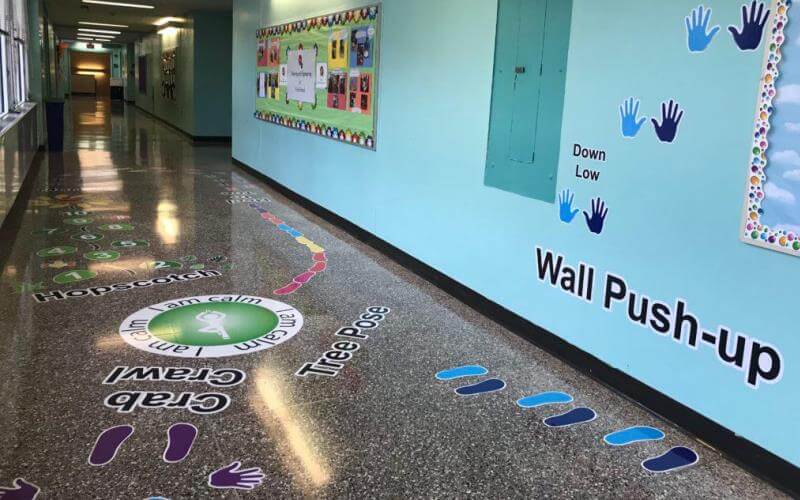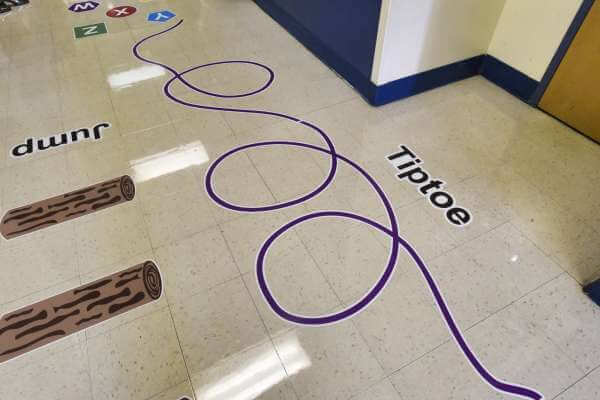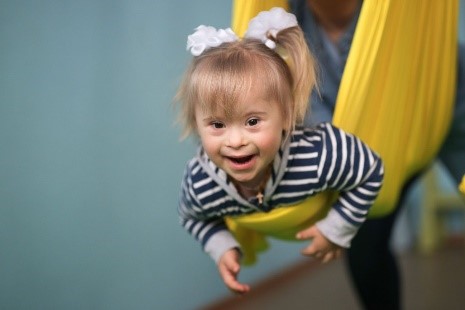
School-based Occupational Therapy is simply defined as therapy services practiced in a learning environment/school.
This form of occupational Therapy is designed to enable learners to access occupational therapy services in their learning environment. In addition, this service is convenient for the student and the parent/caregivers.
The occupational therapists in this setup are known as School-Based Occupational Therapists, mostly Paediatric Occupational Therapists.
School based Occupational Therapists; What Do They Do?
School-Based Occupational Therapists (OTs) primary goal is to work on factors affecting students’ academic performance in schools, such as attention and concentration or handwriting challenges. The therapists address students’ performance’s cognitive, physical, psychological, and sensory components. School-Based Occupational Therapists ensure that the students can actively participate in their learning environments.
School-Based Occupational Therapists also work with neurodiverse students, focusing on the areas that affect play, leisure, and academic performance. For example, an O.T. working on coordination skills to enable a child to play well with their friends or improving the student’s social skills so that they are more successful in making and maintaining friendships.
School-Based OTs collaborate with the school team to enable special needs students to achieve independence in activities of daily living such as feeding, dressing, and toileting, among others.
Channels Used by School Based Occupational Therapists
There are various channels or ways School-Based OT can offer their services in the learning environment. For assessments/evaluations, one-to-one sessions, group sessions, and push-in sessions, the therapist can offer the services in two ways.
- Onsite: The therapist physically goes to the learning environment and offers the services.
- Virtual: The therapist provides the service through technological devices. This is referred to as Telehealth services.
Assessments/Evaluations
School-based occupational therapists conduct assessments/evaluations. The findings act as a compass to chart the path of the intervention journey. The results also shed light on the student’s strengths and challenges. This report becomes instrumental for the school team since it offers various recommendations. Parents/caregivers can also adapt the advice to fit the home environment.
One to One Therapy Sessions
After the assessments/evaluations, the in-school occupational therapy program is tailor-made. The timing of the sessions is picked, and the sessions are done onsite or virtually through Telehealth.
Group Therapy Sessions
Group Occupational therapy sessions are great for working with many students. They are also helpful for students who may need lots of peer learning. Examples of groups are;
- Fine motor groups.
- Gross motor groups.
- Confidence improvement groups.
Training and workshops for Teachers and Families
School-based occupational therapists offer workshops and training for parents and teachers. This enables the participants to learn more about interventions and strategies. In addition, the workshops encourage everyone to be on the same page and allow a team to work together with the knowledge and skills required for the student to thrive.
Push-in Therapy Sessions
Push-in Therapy refers to occupational therapy sessions delivered in classrooms during the everyday events of the school day. In this setup, the school-based occupational therapist carries out the therapy sessions during class.
Benefits of Push-in Therapy Sessions
- It reduces the stigma for the student since (s)he will not be leaving his/her classmates.
- It is less disruptive for the student as (s)he just seems to flow with their everyday routines.
- Other students in the classroom benefit from this support. This includes those who are unidentified and might have the same challenges.
- The occupational therapist and the teaching team gain a better understanding of the child, and a great collaboration is forged.
- It creates an opportunity for peer learning and modeling.
Adaptation/Modification of School Environments
A School-Based Occupational Therapist can recommend adaptations and modifications of the school environment to help students access good education like others. This is truly important for special needs students since it promotes inclusion.
Such adaptations include:

- Advise the school team on where to position an ergonomic, child-friendly working area.
- Providing and showing students how to use handwriting helpers (slant boards, pencil grips, raised lines).
- Designing and setting up Sensory pathways. These can be located in the hallways or play areas; the Sensory pathways allow the students to perform sensory circuits. Sensory circuits have immense benefits for all students.
- Designing and setting up Motor labs. A motor lab is a space to enable children to develop their fine and gross motor skills.
- Adapting playgrounds to be inclusive.
- Adapting the bathroom and toilets to be disability friendly.
Which Students need to Access School-Based Occupational Therapy?
School-based occupational Therapy is provided to a variety of students. Students with any form of delay in their development would need O.T. In addition, any student diagnosed with Dyslexia, Attention Deficit Hyperactivity Disorder (ADHD), Attention Deficit Disorder (A.D.D.), Autism Spectrum Disorder (A.S.D.), Dyspraxia, Dyscalculia, Down Syndrome, Global Learning Difficulties, and Cerebral Palsy would benefit from In-School OT sessions.
Factors that encourage success of the School Based OT Service
Collaboration
School-based Occupational Therapy is a concerted effort between the O.T., school team, and parents. When there is regular and/or frequent communication between the parties, a seamless collaboration is established. This then speeds up the progress of the student.
Consistency
School-based Occupational Therapy should be consistent in terms of quality and frequency. Whether it is one-on-one, group, or push-in sessions, consistency enables one to keep a record and track notable progress. This allows one to achieve the goals set.
In Conclusion
School-Based Occupational Therapy enables many students to access Occupational Therapy services within their learning environment. It is of great benefit to the students, teachers, and parents. The convince it offers to the student, and parent/caregiver makes it a viable option. The school team and the therapists form a symbiotic relationship where they learn from each other. This improves the quality of the education and the sessions.
It would be great to hear about your school-based therapy experience as a parent, teacher, or therapist. Do feel free to ask any relevant questions or leave a comment below. We will be happy to answer your question and reply to your comments.
You can also chat on WhatsApp or get in touch with us. Looking forward to hearing from you.
Don’t forget to share widely.





Martin
January 27, 2020so educative for special needs professionals and parents
Dynamic Occupational Therapy
August 3, 2020Thanks Martin.
Sofia Azad
January 27, 2020This is a nice article
Dynamic Occupational Therapy
August 3, 2020Thank you Sofia.
Lawino Phelestus
January 30, 2020Wonderful...I love this.School based Occupational Therapy seems so interested.i have really benefited
Dynamic Occupational Therapy
August 3, 2020Thank you Lawino for your feedback.
elizabeth maiyani
February 6, 2020Where are you based in Nairobi? I would like to discuss further
Dynamic Occupational Therapy
August 3, 2020Thank you for getting in touch, kindly reach out to us via our contacts for further information.
Franklin White
April 29, 2020I like the idea of having school-based therapy for kids who suffer from mental health problems or problems at home. I hope that more and more schools take this seriously. They should all be doing it so that their students can get the help they need when their lives are miserable.
Dynamic Occupational Therapy
August 3, 2020Thank you Franklin for your feedback, we agree that more schools should have School-Based Occupational Therapy for Neurodiverse students.